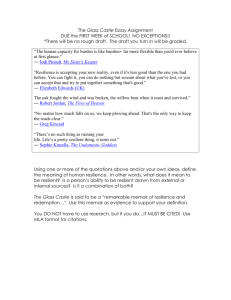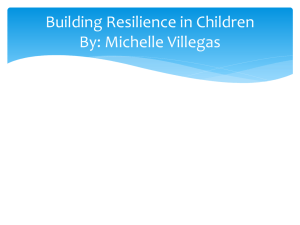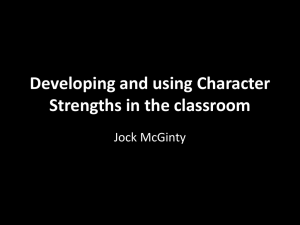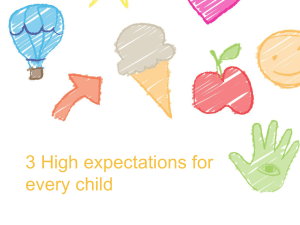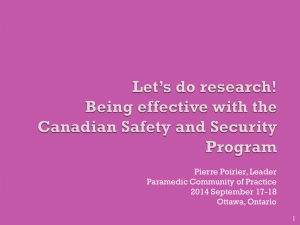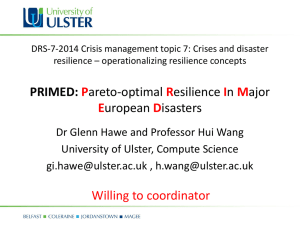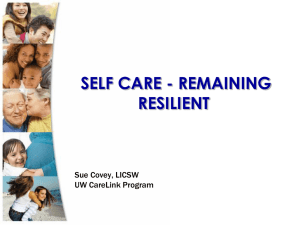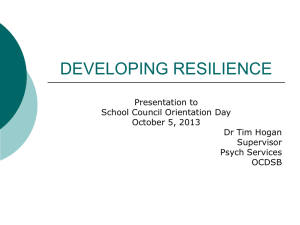Engaged, Resilient and Successful. A middle years challenge
advertisement
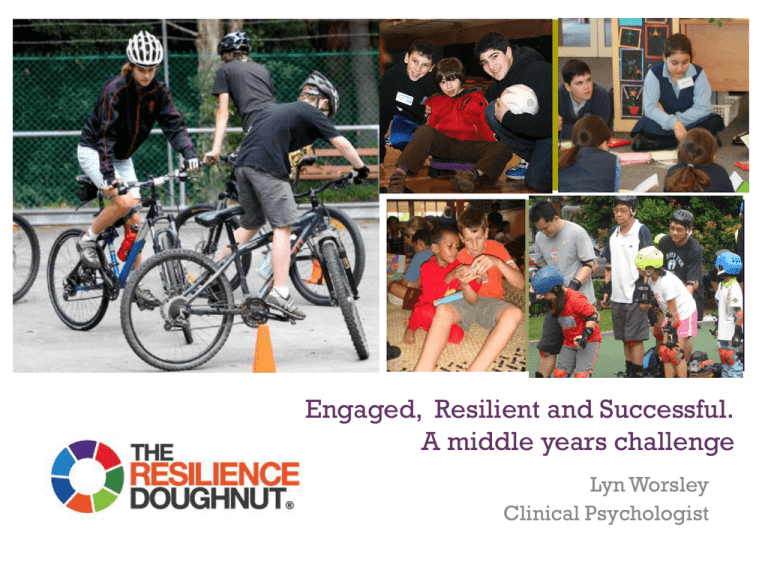
+ Engaged, Resilient and Successful. A middle years challenge Lyn Worsley Clinical Psychologist + Outline Engaged: Who are they engaged with Moral reasoning stages Resilient: Key strength areas in the middle years Connecting strengths to thrive Successful: Connectedness, belonging, building on strengths Characteristics of successful relationships + Draw a scale 0------------------------------------10 0. The student has no self awareness, is dependent on their parents and teachers to dress, organise, and direct them to do everything. 10. The student has high expectations of themselves, is self disciplined, has a good self esteem and knowledge of how to use the resources and connections around them to face challenges in the coming years. What number is the year 5 student ( aged 10)? What number is the year 9 student ( aged 14)? + What is left to learn? Social skills Social scanning Emotional regulation Self efficacy Self discipline Optimism Knowledge style of self, strengths, learning + Stages of Moral Reasoning (Kohlberg) Moral development occurs, Within relationships which have deep connections and purpose. With experiences that cause moral dilemma’s + Pre-conventional Perspective: Only ones own and one other Motives behind decisions: To satisfy ones needs or avoid punishment Standards: Criteria Rules of others for looking at the world: Fairness and consequences + Conventional Perspective: The group Motives behind their decisions: To receive approval from others, and the group laws Standards: Group rules or the common social laws Criteria for looking at the world: Others expectations and compliance with others + Post conventional Perspective: Society as seen by someone from another society Motive behind decisions: To ensure human rights for all Standards: Criteria Personal principles for looking at the world: Justice and universal moral values + Tips for enhancing moral development Ask about motives first Encourage mate-ship with integrity Responsible for friends, caring rather than copying Demonstrate Teach care rather than competition social scanning + Resilience Bungee jumping through the pitfalls of life (Fuller 1998) The process of continual development of personal competence while negotiating available resources in the face of adversity (Worsley,2010) Resilience skills involve social navigation and negotiation ( Ungar, 2008) + The Resilience Doughnut: Connecting strengths to thrive. Internal characteristics of •resourcefulness (I have) •self esteem ( I am) •self efficacy (I can) Interact with seven different contextual factors. Three factors are needed to build resilience + Engaged and Resilient Positive intentional relationships give insight, constructive feedback and enable change, adaptation and resilience. Years 5-6 Copyright Lyn Worsley www.lynworsley.com.au Years 8-9 Copyright Lyn Worsley www.lynworsley.com.au + Engaged, resilient and successful In order to change the trajectories of youth from disengagement to engagement, resilience and success we need to change the attitudes of their families, schools and communities. Evidence shows that working with the existing strong contexts creates a flow on effect to the weaker areas. To help a child to succeed, find their strengths and connect them with purpose.
